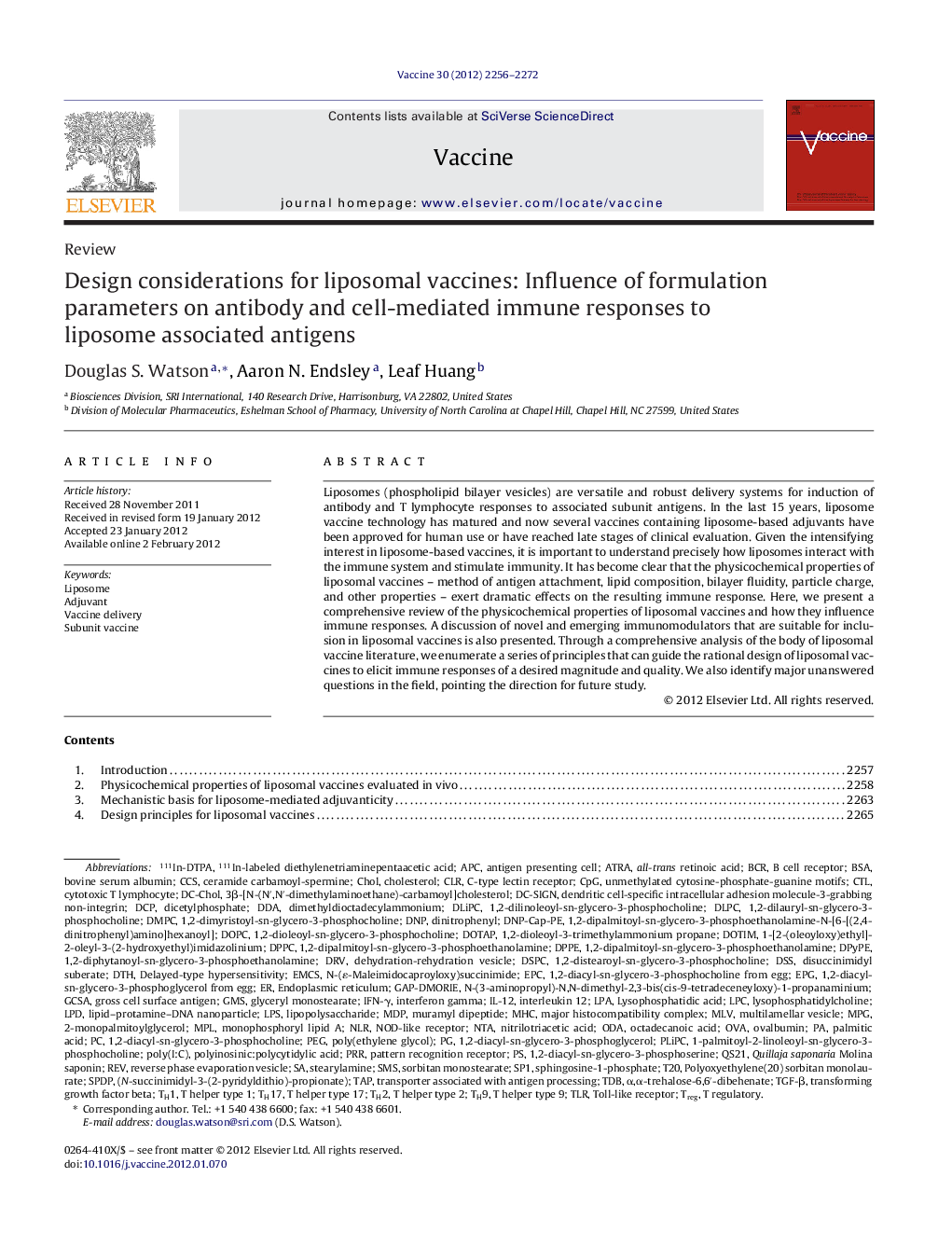| Article ID | Journal | Published Year | Pages | File Type |
|---|---|---|---|---|
| 2402792 | Vaccine | 2012 | 17 Pages |
Liposomes (phospholipid bilayer vesicles) are versatile and robust delivery systems for induction of antibody and T lymphocyte responses to associated subunit antigens. In the last 15 years, liposome vaccine technology has matured and now several vaccines containing liposome-based adjuvants have been approved for human use or have reached late stages of clinical evaluation. Given the intensifying interest in liposome-based vaccines, it is important to understand precisely how liposomes interact with the immune system and stimulate immunity. It has become clear that the physicochemical properties of liposomal vaccines – method of antigen attachment, lipid composition, bilayer fluidity, particle charge, and other properties – exert dramatic effects on the resulting immune response. Here, we present a comprehensive review of the physicochemical properties of liposomal vaccines and how they influence immune responses. A discussion of novel and emerging immunomodulators that are suitable for inclusion in liposomal vaccines is also presented. Through a comprehensive analysis of the body of liposomal vaccine literature, we enumerate a series of principles that can guide the rational design of liposomal vaccines to elicit immune responses of a desired magnitude and quality. We also identify major unanswered questions in the field, pointing the direction for future study.
► We have comprehensively reviewed the current state of liposomal vaccine technology. ► We describe the relationship between formulation parameters and immunogenicity. ► Biophysical properties dictate the immunogenicity of liposomal vaccines. ► Many lipids are immunomodulatory, so formulations must be selected carefully. ► We also highlight unanswered questions and opportunities for further study.
